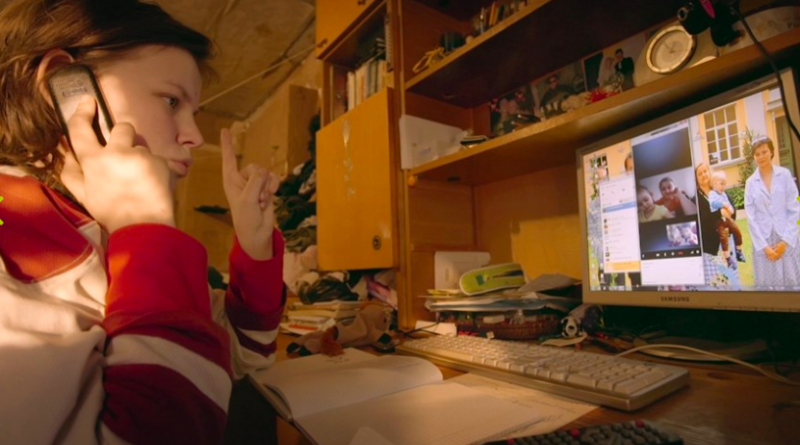2019 Hot Docs presents Inga Can Hear
Inga Can Hear (2018), directed by Kaspars Goba, is a character-driven documentary about a 15-year-old Latvian teenager living in a rural community straddling two worlds, the hearing, and hearing impaired. Born to deaf parents, Inga has become their advocate from an early age tackling any problems and issues they face. The film is in Latvian, Latvian Sign Language and subtitled in English.
The documentary juxtaposes the narrative of a young teenager finding her identity outside the boundaries of her immediate family who yearns for a secondary education against the complexity of her relationship with her parents and to a lesser extent her two siblings who are also deaf.
The film begins with out of focus, handheld camera shots of an intoxicated Inga in her pajamas and slippers walking on a snow-covered road late at night which speaks to her dark side. When asked where she lives, she points to her house. The film cuts to a shot of a house and then to a close up of a first-person interview with Inga sitting on the couch introducing herself revealing an intelligent, charming, and articulate teenager. She speaks of her close relationship to her father who is supportive of her who is revealed sitting on the conch beside her petting the family cat. There is a cutaway of the bookshelf displaying family photos showing pictures of Inga with her family providing a visual clue to her backstory. The camera lingers for a moment on a lovely photo of Inga as a young girl holding a monkey. The film gradually reveals the mother sitting on a chair beside Inga. They converse in Latvian Sign Language and Inga explains in Latvian while signing with her mother that her parents never planned to have her and that they were surprised to learn when she was an infant that she could hear.
Inga Can Hear follows Inga’s life as she prepares to graduate from middle school to preparing for and gaining acceptance into high school, her move away from home, navigating her first term in high school, dealing with her immediate family, her acting out, and the aftermath. It’s a poignant documentary revealing the ups and downs of the turbulent life of a young teen trying to break free and facing issues of identity. One of the most powerful scenes in the documentary is Inga revealing her motivation in making the film. Her heartfelt words for advocating for the deaf are emotionally moving. Another powerful scene in the film is her coming out. The documentary resonated with me on many levels. We can all relate to Inga and her experiences as a young person wanting to spread their wings, exploring their sexuality, and forging a life outside the boundaries of their immediate family.
The director has woven together many visual elements to create an intimate portrait of Inga. Close-ups and medium angle shots are interspersed with wide-angle shots and the film incorporates day and night and interior and exterior footage and with footage shot over an extended period of time at various locations. I liked how Goba situated the story in a rural setting and within the confines of Inga’s home, her schools, her classrooms, her dorm and her mother’s apartment giving the film a context. I also liked the use of Latvian Rap music which adds another layer of complexity.
Do see it for you won’t be disappointed. Inga Can Hear is more than a labor of love to Inga. It is a film about a young person coming of age, and coming out and which explores the meaning of filial bonds and familial relationships.


